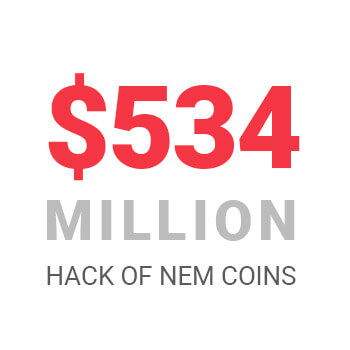 Japan Clamps Down on Cryptocurrency Exchanges to Curb Illegal Financial Activities
Japan Clamps Down on Cryptocurrency Exchanges to Curb Illegal Financial Activities Japan Clamps Down on Cryptocurrency Exchanges to Curb Illegal Financial Activities

Cover art/illustration via CryptoSlate. Image includes combined content which may include AI-generated content.
In a concerted effort to crack down on money laundering, Japan’s Financial Services Agency (FSA) has suspended all operations for two crypto exchanges who were found to be indulging in suspicious monetary undertakings.
 While the ban is not permanent and applicable only for a month, it will be interesting to see how the Japanese government introduces regulations within the crypto domain in the coming future.
While the ban is not permanent and applicable only for a month, it will be interesting to see how the Japanese government introduces regulations within the crypto domain in the coming future.
All of these aforementioned developments come after it was reported in January that Coincheck, a well-known crypto exchange in Japan, had been hacked and the guilty parties had made their way with more than $534 million worth of NEM coins.
What’s the backstory here?
As we speak, the Japanese cryptocurrency market is currently responsible for 61% of all global bitcoin trade. Owing to the nations crypto friendly financial laws, Japan has always been at the forefront when it comes to blockchain adoption and utilization.
However, the country has also faced its fair share of problems when it comes to hacking scandals and crypto fraud. For example, the first crypto exchange that was set up within the island nation in 2010 was hacked within a year of its inception.
Similarly, in 2014 the country was hit with the now infamous Mt Gox heist which saw miscreants get away with nearly $450 million worth of USD.

In response to the Mt Gox scandal, the government was forced to amend existing legal rules so as to make the entire crypto trading process more stringent and verifiable. For starters, investors were required to possess registered trading accounts which had been certified by relevant authorities.
Now in the wake of this latest security lapse, the FSA has mentioned that online exchanges now need to take certain measures so as to appropriately monitor trading activities, as well as provide their employees with the required skill sets to perceive suspicious asset exchanges.
What does the future hold?
With news of the Coincheck hacking scandal spreading across the globe like wildfire, the FSA announced recently that they would be reimbursing all of the 260,000 affected users within the coming few weeks.
Not only that, but a spokesperson for NEM also announced that the company had created an all-new tagging system which allows for better financial transparency and security. According to an official representative:
“This automated system will follow the money and tag any account that receives tainted funds. NEM has already shown exchanges how to check if an account has been tagged. So the good news is that the money that was hacked via exchanges can’t leave.”
Lastly, upon the request of the FSA, Japan’s two largest crypto bodies (the JCBA and JBA) have come together to form a unified self-regulatory unit that will now oversee the workings of over sixteen of the largest crypto exchanges within the nation.
Additionally, the new un-named body also has the been given the responsibility to improve existing security measures and foster newer standards so as to make ICO and crypto investments safer and more streamlined.
Final Thoughts
While these current financial crackdowns may ward away a few new investors, but on the whole, these regulations are a step in the right direction. With Japan dominating a large share of the crypto market, it makes sense for the country to create an environment where people feel safe with their virtual assets.
In fact, these new changes are being welcomed across the board with many crypto experts pushing for such regulations to be adopted by other countries where digital currencies are dominant and feature regularly in monetary transactions.



 CryptoQuant
CryptoQuant 














































































